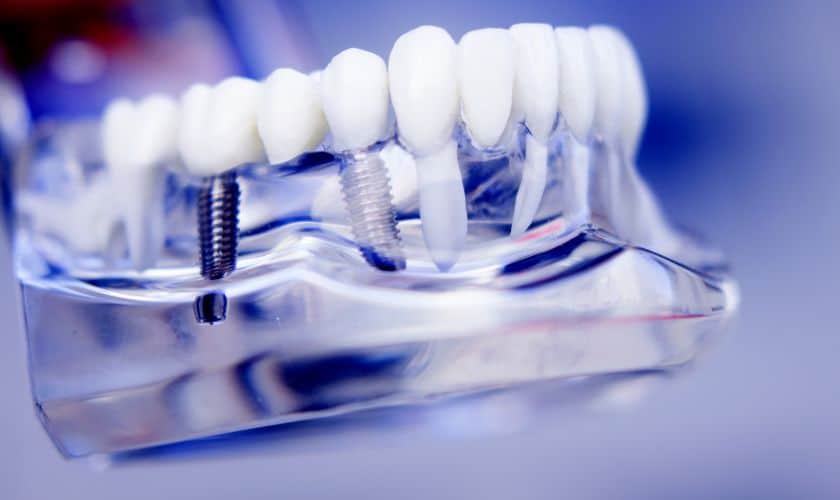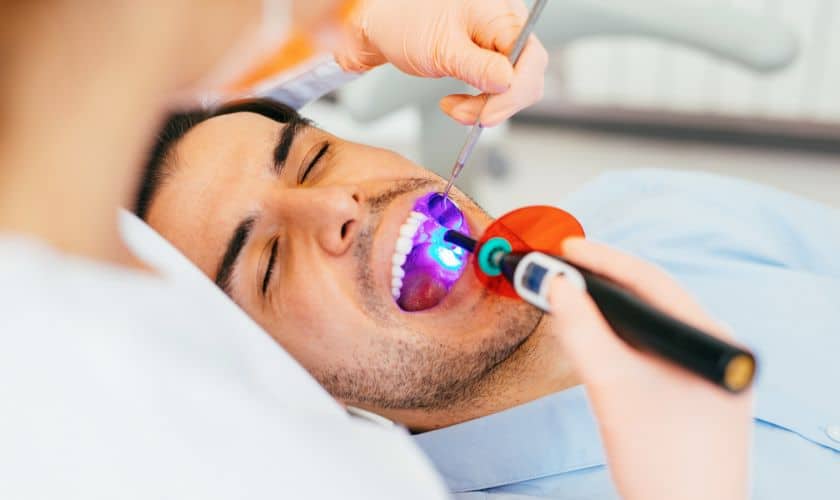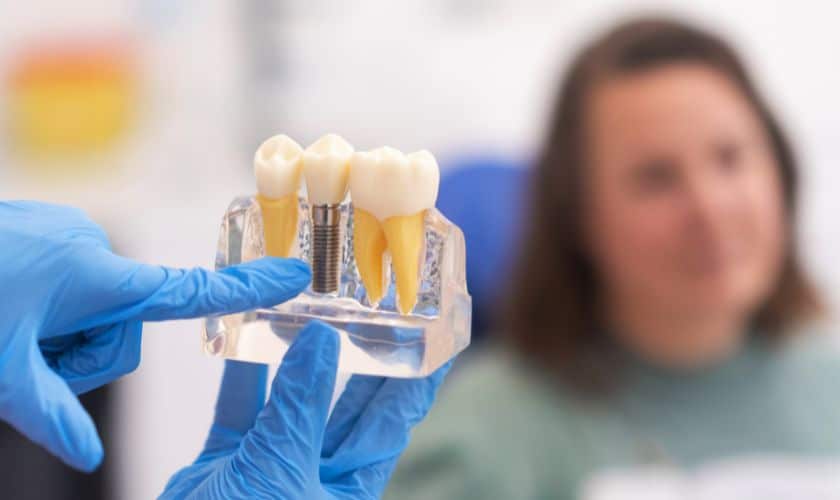Are you one of the millions of people who wear dentures? Whether you’ve been wearing them for years or just recently got them, there are a few things that you should know to keep your smile looking and feeling its best. From different types of dentures to proper care techniques, we’ve got all the tips and tricks you need to ensure your dentures stay in tip-top shape. So sit back, relax, and let’s dive into the top 5 things every denture wearer should know!
What Are Dentures?
Dentures are removable prosthetic appliances used to replace missing teeth and surrounding tissues. They can either be a full set of dentures for those who have lost all their natural teeth, or partial dentures that replace only some missing teeth while preserving remaining natural ones. Dentures are custom-made to fit the unique shape of each patient’s mouth, ensuring they stay comfortably in place while speaking and eating.
Full dentures rest on the gums and jawbone and cover the roof of your mouth, providing support for cheek muscles and lips while allowing you to chew food properly. Partial dentures attach to existing teeth with clasps or precision attachments that blend seamlessly into your smile.
The construction of modern-day dentures has evolved greatly over time thanks to advancements in dental technology. Today’s materials offer comfort, durability, and a look that closely resembles natural teeth.
While it may take some getting used to wearing them at first, many people find that having well-fitted dentures vastly improves their ability to eat, speak clearly, and feel confident about their appearance.
Types Of Dentures
When it comes to dentures, there are several types available depending on your specific needs. One of the more common types is partial dentures, which are used when only a few teeth are missing. They can be removable or fixed and often attach to nearby natural teeth for support.
Full or complete dentures replace all of the teeth in the upper or lower jaw. These are typically recommended when most or all of your natural teeth have been lost due to decay, injury, or gum disease.
Another option is implant-supported dentures, which involve attaching a set of artificial teeth to dental implants that have been surgically placed into the jawbone. This type provides more stability than traditional full or partial dentures and can improve overall chewing ability.
Flexible dentures use a soft material and allow for added comfort compared to other options. They also provide an aesthetic benefit as they blend well with surrounding natural gums.
Ultimately, the type of denture you choose will depend on factors such as how many teeth need replacing and personal preference. It’s important to consult with your dentist who can help determine what treatment option may be best for you.
How To Care For Your Dentures?
Proper care of your dentures is essential for maintaining their functionality, appearance, and longevity. Here are some tips to help you keep your dentures in great shape.
Firstly, make sure to brush your dentures daily with a soft-bristled toothbrush and a non-abrasive denture cleaner. This will help remove any food particles or stains that may have accumulated on the surface of the dentures.
Secondly, be careful not to drop or mishandle your dentures as they can break easily. Always handle them over a soft towel or basin filled with water.
Thirdly, it’s important to maintain good oral hygiene by brushing and flossing remaining natural teeth regularly. This will prevent gum disease and other dental problems that could affect the fit of your dentures.
Fourthly, avoid using abrasive materials like regular toothpaste or hard bristle brushes when cleaning your dentures as they can scratch the surface causing damage over time.
It’s recommended that you schedule regular check-ups with your dentist so they can assess the fit of your denture and recommend adjustments if necessary. By following these simple guidelines for care and maintenance you can enjoy optimal dental health while keeping those pearly whites shining bright!
How To Replace Dentures?
If your dentures are worn out or damaged, it is essential to replace them to avoid any discomfort and embarrassment. Here’s how you can replace your dentures:
- Schedule an appointment with your dentist: The first step in replacing your dentures is scheduling a consultation with your dentist. They will examine the condition of your current set of dentures and determine whether you need a new one.
- Get impressions taken: Once the decision has been made, the dentist will take impressions of your mouth to create custom-fitted dentures that match the shape and size of your gums.
- Try on a new set of teeth: After creating a mold, you’ll be asked to try on the new set of teeth before they’re permanently fixed in place.
- Adjustments: Your dentist may make some minor adjustments until you feel comfortable wearing them.
- Proper care for longevity: To ensure their longevity, clean them regularly by brushing twice daily using mild soap or toothpaste specifically designed for cleaning dental implants or prostheses; soak overnight in water mixed with a cleanser tablet.
Replacing dentures can be an easy process if done correctly under professional supervision from start to finish!
The Bottom Line
Dentures are a great solution for those who have experienced tooth loss. They can restore confidence and improve overall quality of life by allowing individuals to eat and speak with ease. It is important to understand the different types of dentures available and how to properly care for them in order to ensure their longevity and effectiveness.
Regular dental check-ups are also crucial when it comes to maintaining healthy gums and ensuring proper fit of your dentures. If you experience any discomfort or notice significant wear on your dentures, it may be time for replacements. By following these tips, you can enjoy the benefits of having functional teeth once again with your new set of dentures!





